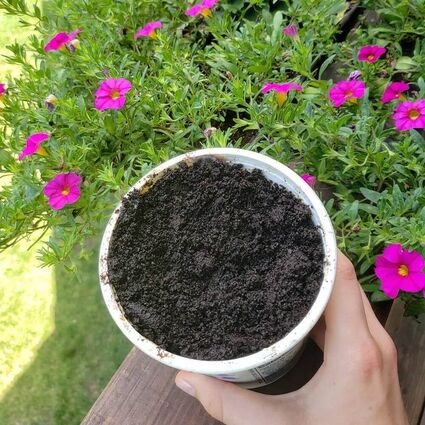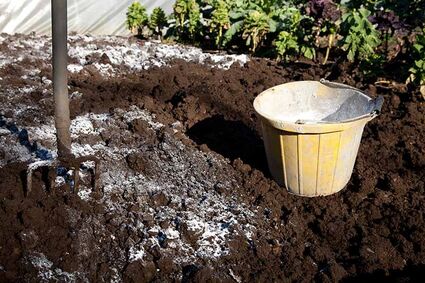Benefiting Plants: Coffee Grounds, Egg Shells & Epsom Salt
Last updated 5/31/2022 at 2:54pm
Let me start by saying everyone leads a hurried and hectic lifestyle, that's our world and it's not going to change any time soon! As a gardener, occasionally, you need to take a step back and think about what you are adding to your garden and then ask yourself why. Sometimes the stuff you add to our garden is beneficial, sometimes the stuff you add is insignificant and not impactful, but sometimes what you add is detrimental, harming your soil and plants.
Coffee Grounds
For some gardeners, such as myself, who do not compost (as I'm unable to keep goats, sheep, and cows out of the compost bins), those who are beginning to compost or are interested in composting, one of the best things for your compost and garden is used coffee grounds. Coffee grounds can be beneficial to your soil, but not because they lower pH. When adding spent coffee grounds directly to your garden soil or compost bin, you are adding a small amount of nitrogen. Disperse the coffee grounds into a thin layer when adding them to the compost bin or garden soil. Mix them into the soil or compost and do not let them sit as a thick layer in either one. Coffee grounds contain the three major nutrient components for plants – N (Nitrogen), P (Phosphorus) and K (Potassium).
Egg Shells
Nitrogen, phosphorus, and potassium are macro-nutrients, and the most vital for healthy plant growth, calcium is essential for building healthy cell walls within plant. Eggshells are composed of calcium carbonate and can easily be added into your soil. Prepare the eggshells by drying them thoroughly in the oven or outside in a sunny location. Once dried, break the shells into smaller pieces and place into a blender, adding about one or two cups of water, then pulverize. You can also use a coffee or spice grinder or mortar and pestle. Using the grinder or mortar and pestle will provide you with a very fine powder which will decompose into the soil faster.
Calcium only enters plants through actively growing root tips, moving through the plant and into the fruits along with water, via transpiration. Root damage or problems with water uptake and movement in the plant limit the amount of calcium reaching the fruit. Often an abundance of other nutrients in the soi, such as magnesium or ammonium will interfere with calcium uptake.
Epsom Salt
Occasionally, I will read a post on social media, gardening blog, or magazine article touting the benefit of using Epsom Salt on their flowers or in the vegetable garden. After some research, this is what I have found on Epsom Salt and gardening. Before using Epsom salt, have your soil tested. Your local County Extension office can provide you with soil testing forms and provide you the process to capture soil samples. The cost to perform soil sample analysis is minimal, less than $20.
Epsom salts contain magnesium sulfate (MgSO4) and are touted as a common garden cure-all. Wouldn't that be nice! Sadly, it's not true. Epsom salts will not prevent blossom end rot. In fact, adding too much magnesium to your soil can prevent adequate calcium from getting into your plants, making blossom end rot even worse. Adding Epsom salts to soil that already has sufficient magnesium can harm your soil and plants, such as by inhibiting calcium uptake.
If you have specific gardening questions or need more information, contact the Orange County Master Gardeners Helpline: (409) 882-7010 or visit our website: https://txmg.org/orange, Facebook: Orange County Texas Master Gardeners Association or Email: [email protected].
Our next Orange County Master Gardener certification class begins August 25th.. Classes are held Thursday evening at Orange County Expo Hall. Class fee is $150 and includes training manual, supplies and speakers' fees. Please visit our website above, then click JOIN MG link for more information.















Reader Comments(0)